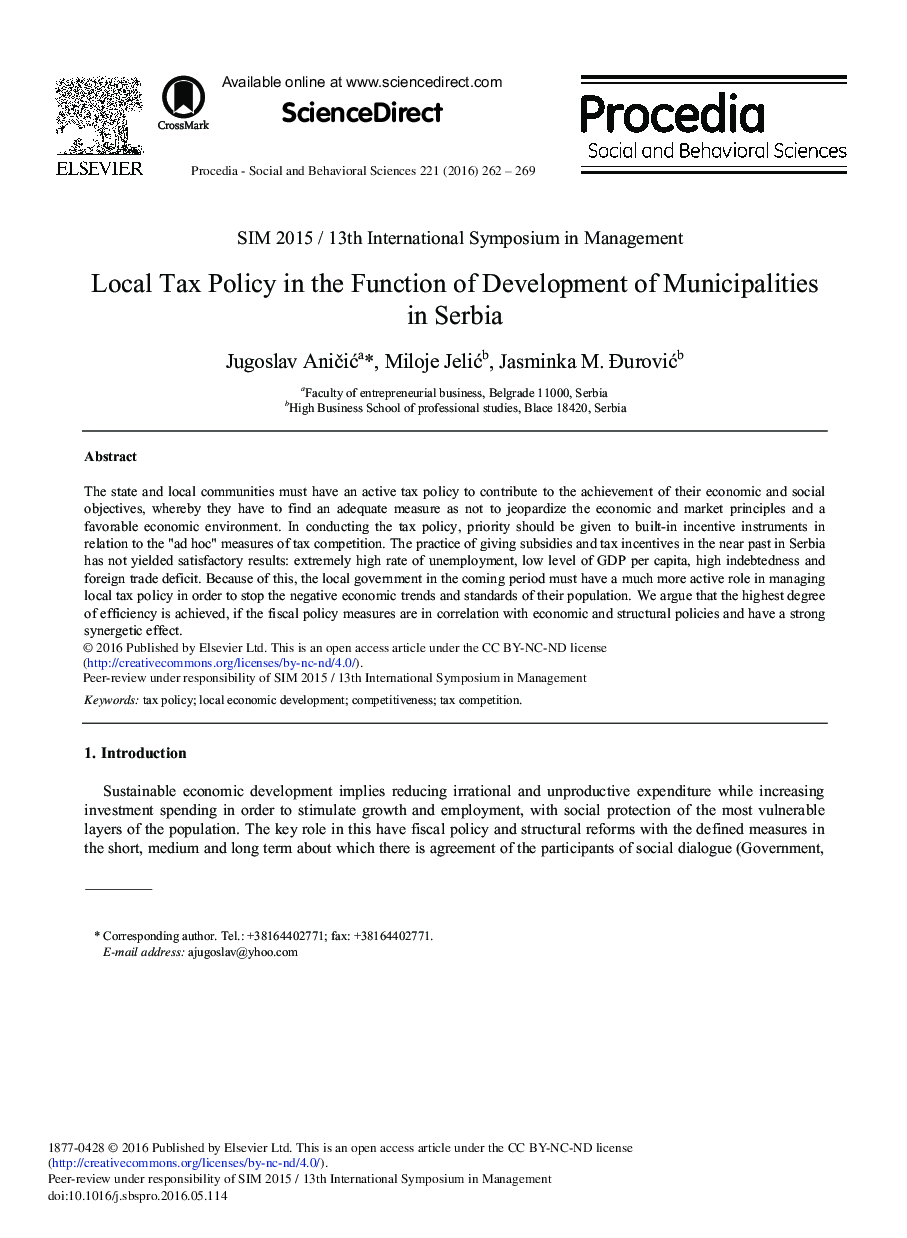| Article ID | Journal | Published Year | Pages | File Type |
|---|---|---|---|---|
| 1107963 | Procedia - Social and Behavioral Sciences | 2016 | 8 Pages |
The state and local communities must have an active tax policy to contribute to the achievement of their economic and social objectives, whereby they have to find an adequate measure as not to jeopardize the economic and market principles and a favorable economic environment. In conducting the tax policy, priority should be given to built-in incentive instruments in relation to the “ad hoc” measures of tax competition. The practice of giving subsidies and tax incentives in the near past in Serbia has not yielded satisfactory results: extremely high rate of unemployment, low level of GDP per capita, high indebtedness and foreign trade deficit. Because of this, the local government in the coming period must have a much more active role in managing local tax policy in order to stop the negative economic trends and standards of their population. We argue that the highest degree of efficiency is achieved, if the fiscal policy measures are in correlation with economic and structural policies and have a strong synergetic effect.
